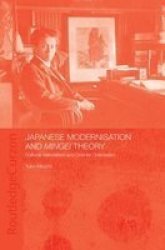Description
The article discusses the concept of Mingei, which is a Japanese aesthetic movement that has been adapted by Bernard Leach and has been influential to a western audience. The article argues that the "Orientalness" perceived in Mingei theory may be nothing more than a myth, and that the concept of Mingei can be applied to a variety of cultures.
Conceptualised in 1920s Japan by Yanagi Setsu, the Mingei movement has spread world wide since the 1950s, creating phenomena as diverse as Mingei museums, Mingei connoisseurs and collectors, Mingei shops and Mingei restaurants. The theory, at its core and its adaptation by Bernard Leach, has long been an influential 'Oriental' aesthetic for studio craft artists in the West. But why did Mingei become so particularly influential to a western audience? And could the 'Orientalness' perceived in Mingei theory be nothing more than a myth? This richly illustrated work offers controversial new evidence through its cross-cultural examination of a wide range of materials in Japanese, English, Korean and Chinese, bringing about startling new conclusions concerning Japanese modernization and cultural authenticity. This new interpretation of the Mingei movement will appeal to scholars of Japanese art history as well as those with interests in cultural identity in non-Western cultures.
